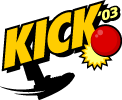This is the time of year when I get a little sad that I’m not going to be traveling to Austin to attend SxSW. I put in a good few-year run of making it to the conference, but last year and this, my work life here in Boston (and my two-week honeymoon in October!) has made it impossible for me to make it down to the great state of Texas. (Having spent two formative decades of my life 70 miles south of Austin, I actually mean that, at a minimum because of the chile con queso, breakfast tacos, and margaritas.)
Being that my training as a pediatric hematologist/oncologist has taken precendence over the web-geek side of my life for the past little bit of time, moving SxSW onto the back burner makes good sense — hell, when I went two years ago, my professional focus had already shifted enough that the talks and interactive sessions played a clear second fiddle to having the chance to see a bunch of old friends and meet a slew of people in-person that I only knew via email and instant messaging. And while it still makes sense that I dedicated my conference time this year to the annual American Society of Hematology meeting, I’m nonetheless sad that a sizable chunk of my friends will be getting together in Austin over the weekend, listening to great talks about the world of interactive media, eating amazing breakfasts at Las Manitas and lunches at Guero’s (I’m looking at you, Alison!), going bowling late into the night, and generally having fun.
I’ll miss you guys — have a big bowl of queso and a margarita (on the rocks, with salt) for me!




